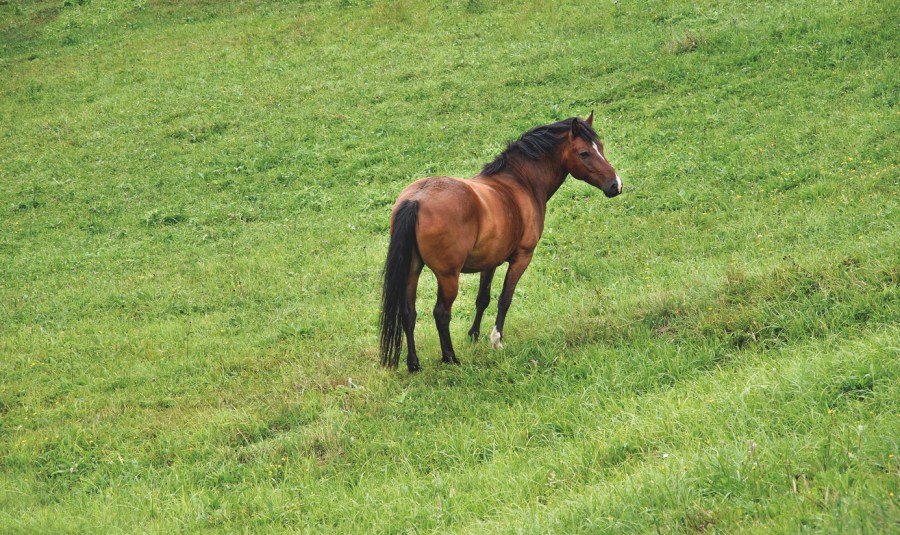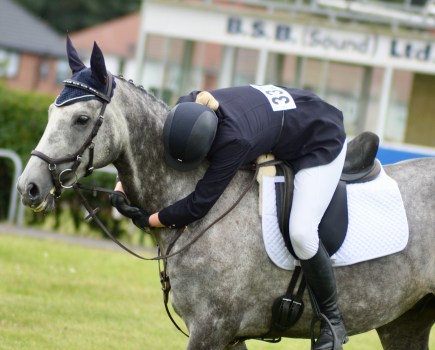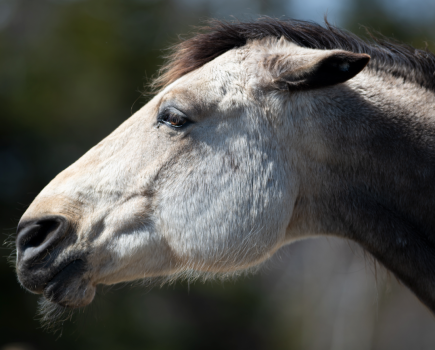Equine charities are encountering increasing numbers of overweight horses. World Horse Welfare field officer Penny Baker discusses the implications of obese horses for charities, and what owners can do to help the obesity pandemic.
Equine obesity in the UK isn’t anything new. We have seen consistency in overweight and obese equines coming into our farms over the past several years.
This is a worrying trend, because the issues that are often attached to being overweight, such as lameness, laminitis and equine metabolic syndrome (EMS), are all long-term, potentially life-limiting issues.
This means horses spend more time in rehabilitation and are more likely to need ongoing vet care or specialist management.
In 2020, World Horse Welfare had 620 calls of horses reported to us as underweight, versus 58 of horses reported as overweight. In 2019, these numbers were 514/65.
However, the reality is that there is a great number of yards up and down the country that have overweight horses in their fields which go unrecognised as a welfare concern.
Feedback from our front-line officers is that when attending these calls, what they find as actually being underweight doesn’t match with the figures reported.
‘Obese horses are harder to rehabilitate’
We teamed up with the National Equine Forum in March to look at why we are seeing this trend across the whole equine industry, and how all the different industry professions can play a responsible role in helping to amend perceptions and correct what has become a skewed vision of normal.
We take in approximately 300 horses a year and find that the ones with the most guarded outcomes for successful rehabilitation are those who arrive obese and suffering from conditions such as laminitis.
We can rehabilitate a thin horse much more quickly, if no other underlying conditions are present, and return it to full health without any lasting damage. It is important that we address this anomaly.
The cost of rehab for these overweight animals is often greater and they will require more dynamic management solutions than those who are in the underweight category.
‘Misguided kindness’
Weight management can be challenging — be it in humans, canines, or equines. With weight issues so widespread, it has skewed what is commonly recognised as the ‘healthy’ weight or an ‘ideal’ weight.
Overweight horses are often thought to be happy and content, or even cute. Many Your Horse readers will have seen, and maybe even laughed at, fat pony memes, but this is a serious issue.
Misguided anthropomorphising kindness in the shape of overfeeding, inappropriate rugging and insufficient movement is continuing to sweep this problem in the wrong direction.
Related to this…
- How to body condition score your horse
- Strip grazing: why it’s a great way to improve your horse’s health and how it works
- Overfeeding and underworking: the equine obesity epidemic
‘Confronted about visiting overweight horses’
The result of this is that I see horses reported to our welfare line as underweight who are actually an ideal body condition. When investigating reports of underweight horses, I see first hand how quick everyone is to judge and condemn the owner of a thin horse as neglectful, but it is rare that the owner of a fat horse is challenged in the same way.
There have been occasions when I’ve been confronted about why I’m visiting horses that are clearly well loved, indicating that overweight horses are often not seen as being a welfare concern.
Historically, the area of welfare has been associated with underweight horses, and while that association probably hasn’t changed, the UK’s equine problems certainly have.
Everyone has a job to do
We must all take our own appropriate responsibility for weight management across the whole equine industry, including:
- Horse owners learning how to fat score
- Vets who provide seasonal advice and use direct but encouraging language
- Feed companies that offer the use of a weighbridge
- Welfare organisations offering support material and weight management tools
- The media and their use of photographs of equines of an appropriate weight
- Professional riders leading by example and admitting it can be hard to get the right balance
- Farriers pointing out laminitic damage to the client for better understanding
It all counts, it all matters and together we all play a part. If we don’t do this, we will see more health problems related to excess weight. It will become harder to own a horse that hasn’t had some kind of weight-related issue and obesity will become even more of a norm than it already has.









